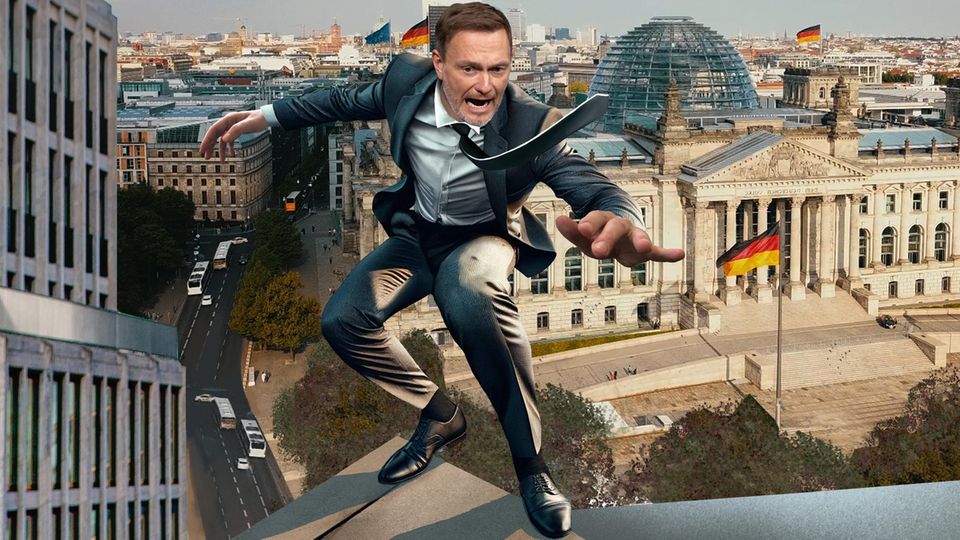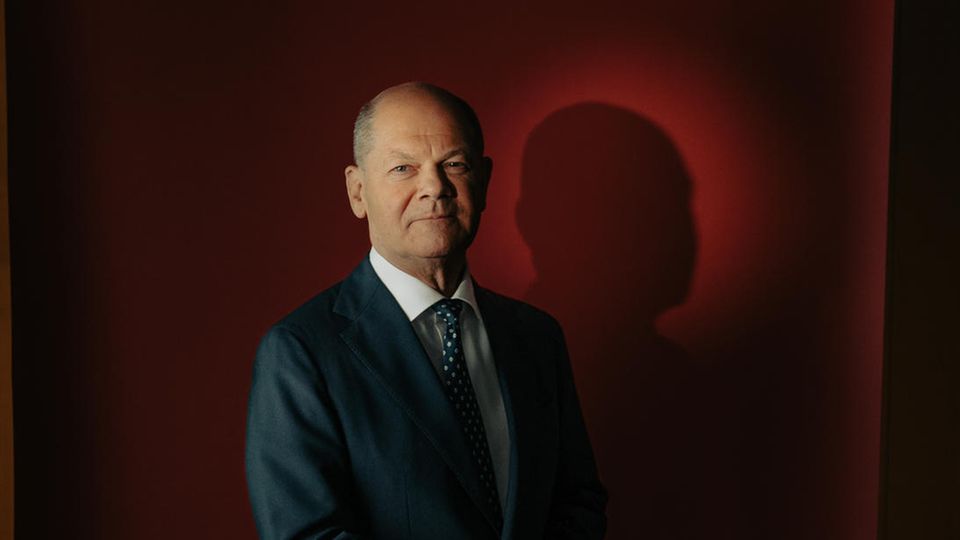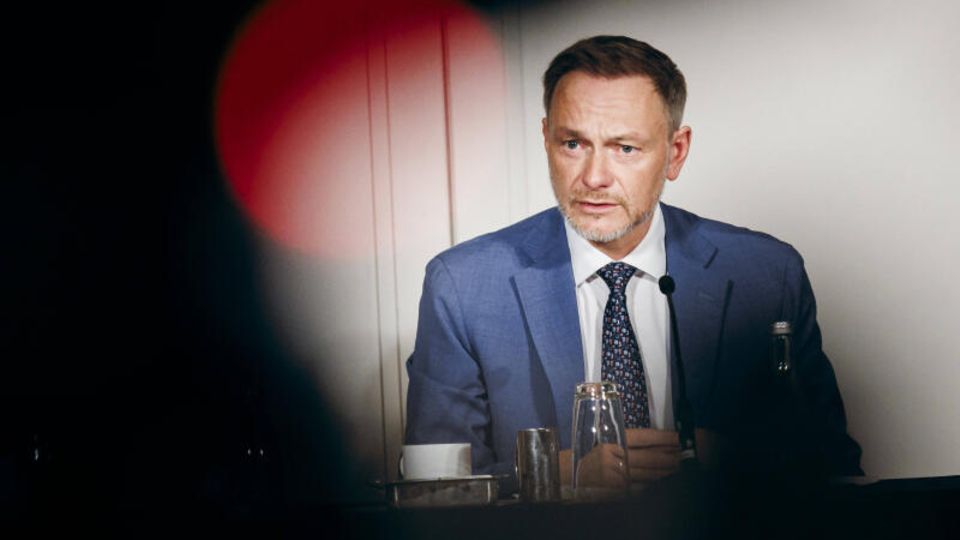Restraint is a thing of the past: FDP leader Christian Lindner is tightening the tone in the budget dispute. The SPD and the Greens should have no illusions. This makes it clear: This man goes through with it, even until the traffic lights go out.
In two and a half years of the traffic light coalition, there was no shortage of articles about Christian Lindner. His sentences have been turned, interpreted and checked for coherence. His actions have been analyzed, commented on and often condemned. He was the eternal blocker, the disruptor of red-green dreams of progress. The star mounted him on the magazine cover in December, sitting comfortably on a couple of sticks of dynamite. Title line: “The demolition master”.
No, the Vice-Vice-Chancellor certainly cannot complain about the lack of attention. What haven’t the SPD and the Greens, the opposition and the media pondered to the point of desperation: What does this man want? Does the finance minister really enjoy governing as much as he always emphasizes? Or has the FDP leader been planning to turn off the traffic lights for a long time?
Fortunately, the fine art of Lindner astrology can now be saved for good in these crucial days of the budget dispute. You just have to listen carefully to him. Then the rest explains itself. In essence, Lindner has been saying the same thing for weeks. But his tone becomes sharper, more direct, more ruthless. He now avoids nuances.
In just under seven weeks there will either be a budget draft for 2025. Or the traffic lights will be history. Always forward, never look back. A man pulls through.
“The illusion that money just falls from the sky”
On Thursday, for example, Lindner announced that the federal government will have to make do with around eleven billion euros less in 2025 than previously thought: “The result of the tax estimate destroys the illusion of all those who may have suspected that the money would simply fall from the sky .
Lindner left it open who suspected that. It’s no secret anyway who he accuses of not recognizing the seriousness of the situation: his dear cabinet colleagues from the SPD and the Greens. Actually, all ministries should only be allowed to request as much budget as agreed and provided for in the financial plan. That’s what Lindner, the Green Economics Minister Robert Habeck and the Federal Chancellor decided. An agreement reached by Olaf Scholz this week star reaffirmed. Which somehow seems to have completely bypassed Comrade Hubertus Heil in the Ministry of Labor, for example.
Now ministers traditionally fight for their department in budget negotiations. In the good old GroKo days, everyone was able to get a decent amount of help with the tax estimate at the latest. But those times are over. And that shouldn’t surprise anyone in this government. Nobody. The dispute over the budget has been going on for far too long.
You may find them stupid, these financial shackles that the traffic light has put on itself. Especially in a situation where the country urgently needs to invest in war capability and climate protection. But what did the SPD and the Greens expect?
That Lindner is committed to tax increases for high earners? Very funny.
That he is pushing forward a reform of the debt brake, which cannot be done without the Union anyway? Pretty absurd.
Or that he finds a shaky reason to suspend the debt brake just to suffer the next defeat before the Federal Constitutional Court? Hahaha.
The SPD and the Greens are currently giving the impression that the negotiations are going according to the usual games: everyone gambles a little, including the finance minister, and in the end everything turns out well, somehow. One would like to protect the relevant ministers from this illusion, provided they really care about drawing up a budget. To speak to the former Chancellor: The situation is serious – take Christian Lindner seriously.
Christian Lindner doesn’t spare the Chancellor either
On Tuesday, for example, the Finance Minister reacted to an initiative by the Chancellor as follows: “The SPD continually makes proposals that do not fit the coalition agreement for this legislative period,” said Lindner. “The only new thing is that the Chancellor is now also taking part in this. I hope that the SPD’s feigned outrage will end when the FDP puts forward ideas independently.”
What happened? Olaf Scholz had… star-Interview called for the minimum wage to be increased first to 14, then to 15 euros. It’s a given that Lindner wouldn’t find any sympathy for this. But the fact that he addressed the Chancellor so directly is quite unusual. It’s just that the “feigned indignation” has long been annoying to many in the FDP parliamentary group. Hardly a week goes by without debt brake proposals from the SPD leadership, it is said. But if the FDP proposes something that is not in the coalition agreement just once, the alarm for troublemakers and blockers will immediately arise again.
You should sort this out briefly. The FDP’s most important demands, about which there is little in the coalition agreement, are hidden behind the triad of “economic turnaround” that Lindner demands every day. Reform the labor market, reduce bureaucracy, reduce taxes. These are the conclusions that the Liberals are drawing from the current situation. The economy is doing badly and appropriate reforms are needed. Immediately. That’s why the FDP is currently writing either 12-point or 5-point papers, demanding all sorts of things, which they know that most of them can only be implemented to a limited extent with the SPD and the Greens.
Very important: The new situation has no impact on the two red lines with which the FDP entered this coalition: no tax increases, the debt brake applies. Both are non-negotiable, and more than that, from a liberal perspective, they are more right and important than ever before.
At the SPD, on the other hand, they also talk about a new situation that needs to be adapted to, coalition agreement or not, but they mean less the lack of growth than the war in Ukraine, the energy crisis and inflation. For fear of ruining the country’s savings, the comrades repeatedly end up with tax increases and a reform of the debt brake, so they want to negotiate exactly what is non-negotiable for the FDP.
These distorted perceptions and conclusions ensure that the SPD, Greens and FDP are driving themselves into an endgame for the traffic lights in the budget negotiations with and against each other.
Oh my god, the bike paths in Peru
On ZDF, Lindner has now made it clear what he means by setting priorities in view of tight budgets: “We can no longer pay for every cycle path in Peru with German taxpayers’ money.”
Oh my god, the bike paths in Peru. With all due respect, this is cheap polemic. It provokes the SPD, which, together with Svenja Schulze, is responsible for development cooperation. It provokes the Greens, who will accuse him of spreading right-wing populist narratives and thereby endangering democracy. But above all, it stands out.
One can now see this as one of the rather rare failures in which Lindner reaches for the lowest shelf of vulgar liberalism. But you could also understand it as a further signal to the coalition partners: Finally wake up, I’m ready for anything.




